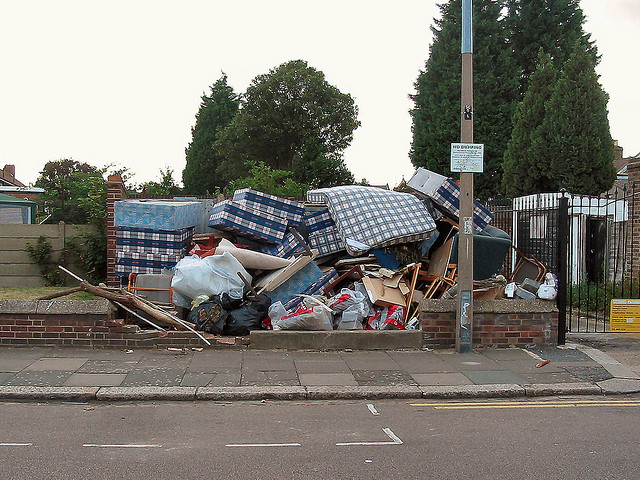As a business, you have a responsibility to properly manage any waste that you produce; something that is referred to as your “duty of care”. The business waste which I am referring to could include construction, agricultural or commercial waste, even if you produce business waste from your own home.
Your duty of care
As a producer of waste, your duty of care commences from when the waste is produced until the point where an authorised firm takes it away from you and deals with it in the correct manner (i.e. when a registered waste carrier takes the waste away for disposal or recycling).
Part of your duty of care also includes considering if there are alternative ways that you could deal with your waste, such as recycling it, and managing the safe and secure containment of your waste.
You might need to obtain a licence or permit (if relevant) to store, transport and dispose of any waste yourself, and you may also have extra responsibilities to adhere to if you deal with any hazardous waste.
Storage of waste
If your business accumulates waste, it will need to be stored correctly until it is collected for disposal or recycling.
Here are some key points which you need to adhere to:
- Different types of waste must be separated;
- All waste must be stored in a secure location;
- All waste must be contained correctly and labelled.
There are other considerations that need to be made if you need to store any liquid waste, such as ensuring that the waste does not escape into drains, and that they are stored under a waterproof cover if rain prevents it from being reused, for example.
How to dispose of waste – is recycling the answer?
There is a plethora of recycling companies in the United Kingdom such as www.recycling4you.co.uk that can assist you with the regular collection and recycling of any recyclable waste your business generates.
Recycling is generally a better way of dealing with waste instead of just having it disposed of or being taken to a landfill site, as it means that most, if not all, waste that you generate can be reused towards making new products.
A by-product of recycling is the fact that you can use this information to your advantage by promoting your firm as a “green” business.
For example, technology manufacturer Apple has gone to great lengths to promote itself as an eco-friendly company by minimising the amount of material it uses to package up its products in, its own data centres are powered by 100% renewable energy, and it offers a recycling programme in addition to its WEEE responsibilities by giving you a discount off any new hardware if you hand your old kit in for recycling.
Obviously all businesses and organisations in the United Kingdom don’t have the resources to make themselves uber-green, but they can at least start with some simple recycling policies which help to divert waste that would have otherwise gone straight to a landfill site.







